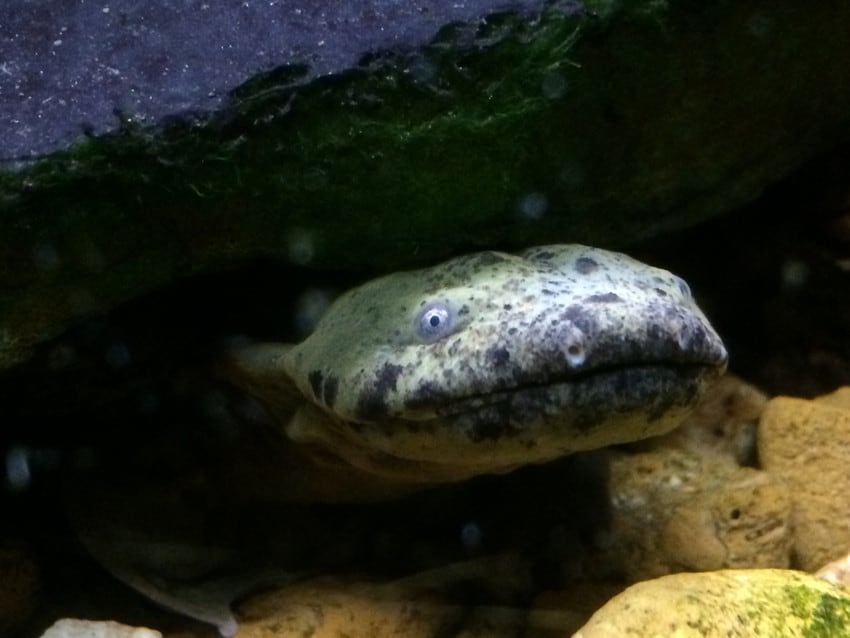The Eastern hellbender, aka “snot otter”, darling of the Susquehanna River, is now at the center of a planned lawsuit.
Conservation groups including the Lower and Middle Susquehanna riverkeepers, Center for Biological Diversity, Waterkeeper Alliance, and Waterkeepers Chesapeake filed a notice of intent to sue the U.S. Fish and Wildlife Service (USFWS) for denying the hellbender Endangered Species Act protection.
North America’s largest salamander species, the Eastern hellbender can grow to more than two feet long and lives in rivers and streams from New York to Missouri—including streams in the Susquehanna rivershed. The hellbender enjoys such colorful nicknames as snot otter, devil dog, and “old lasagna sides”, thanks to the loose, frilly skin along its sides and its mucus-like skin covering. They live 25–30 years, in some cases closer to 50.
The hellbender is disappearing from much of its historic range thanks to pollution, habitat destruction, and climate change.
In Pennsylvania, a group of student leaders from the Chesapeake Bay Foundation successfully passed legislation making the Eastern hellbender the official state amphibian, as Bay Bulletin reported. It was signed into law in April 2019.
The same month, however, USFWS found that protection under the Endangered Species Act was not warranted for the hellbender. But conservation groups beg to differ. According to Waterkeepers Chesapeake, 80 percent of hellbender populations have already been lost or are in decline, because of agricultural and industrial pollution, loss of habitat, warming waters, and dams.
Conservationists say the amphibian’s decline can be a symptom of worse problems to come within a watershed.
“Hellbenders are like the canary in the coal mine. This ancient species is now almost gone from much of Appalachian streams because they are incredibly sensitive to pollutants and the destruction of their habitats when smothered by sediment,” said Morgan Johnson, a staff attorney at Waterkeepers Chesapeake. “Hellbenders are usually the first species to vanish when clean mountain streams are contaminated and disturbed.”
When USFWS denied protection to the hellbender, they considered population growth efforts like artificial nest boxes or releasing juvenile hellbenders raised in captivity into the wild, but conservationists say the repopulation efforts are unproven, and don’t solve the many threats hellbenders face.
John Zaktansky, executive director of the Middle Susquehanna Riverkeeper Association. “An endangered or threatened status for this creature, which has helped us better monitor our network of waterways, would go a long way to securing their future—and the future of the waters in which they live.”
Under the Notice of Intent, USFWS has 60 days to “remedy the violations” outlined by the groups, at which point a lawsuit would be filed.
-Meg Walburn Viviano




